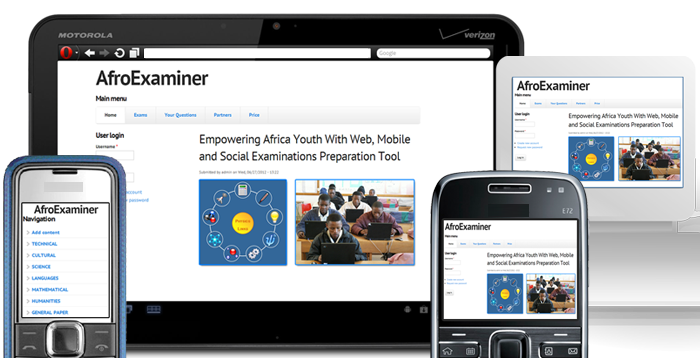Africa has made remarkable advancement in education over the past 20 years. The number of primary-aged children who don’t go to school has been cut down by 40 percent, and more than 82 percent of primary-aged pupils are in school. Not forgetting the fact that the number of girls are attending school keeps increasing every year.
Uganda was among the first countries to introduce Universal Primary Education (UPE) and much as the number of school going children and girls has increased, it’s not necessary that the children are learning much as such. With limited access to good teachers, low ratio of teacher to student access, and limited or no access to reading and writing materials such as books and past revision papers, very few are learning from schools; that is they can barely read or write and as such so many keep dropping out.
In 2019, Uganda’s leading examination authority – UNEB noted that 80% of Primary leaving education (PLE) candidates don’t reach S.6. We get more concerned about the huge students’ dropout between Primary Seven and Senior Six, every new day. 58.2 percent those who make it to S.6 are boys whereas girls only constitute 41.8 percent.
A number of girls drop out of school because they are not groomed and taught about sexual reproductive health including the details on menstruation matters and the challenges that comes with. Many of these drop outs end up working in bars, shops, tea, sugar cane and coffee farms.
There’s no doubt that Education helps children get access to essential information, services and protection from harmful practices.
Formation of digitalized tools such as financial literacy clubs reduce school dropout rates, child marriage and teenage pregnancy and also empower students with business knowledge that gives them more hope for prosperity after school.
Include Everyone program has set out to kick start a study on FinTech For Children to help the world understand the kind of financial technology that children need to better their education life and environment.
According to the 2019 Save the Children’s Global Childhood report, millions of children in Uganda are still out of school, go to bed hungry, cannot access adequate healthcare, and suffer from child marriage and teen pregnancy.
We are part of the community working toward the success of the United Nations’ Sustainable Development Goal 4, which seeks a quality education for all children. For many times, we have talked to African parents, students, teachers, governments, academics, bureaucrats, non-governmental organizations, social entrepreneurs, and have come up approaches that can help improve practical results’ oriented primary and secondary education, with an emphasis on foundational learning.
With 90% of the world’s poor now covered by a mobile signal, we think that digitalizing educational tools in the super-fast growing digital economy would be the best bet to add more value to our education, cost effectively. As such, we have since 2012 been researching on how to best set up AfroExaminer; a Social Examinations Preparation Tool that is intended to Empower African youth, children and girls with free or affordable educational material through mobile and web.
Additionally, we are carrying out studies on appropriate FinTech for Children plus an additional survey on how best education can be administered to a multitude of school drop outs by setting up Ghetto Schools’ scheme that empowers and educates illiterates in urban ghettos through making use of existing corporate as facilitators to teach citizens by sharing practical technical and business knowledge and experience.
AfroExaminer
Preparation for public examinations is expensive for an average African youth since for example in Uganda one of the costs would be an average of 100 US dollars to purchase previous years examination paper booklets that are used to help the student get acquainted with the examinations format. The inaccessibility to these books by many students in Uganda means that the chances of some students to perform well and progress to the next level of education are reduced and hence their chances to a brighter successful future are also reduced. These youth need more affordable and accessible solutions to help them in examinations preparations.
AfroExaminer sets out to use ICT to deliver a solution that will improve examinations preparation for the youth especially for those that do not afford 100 US dollars to purchase 10 books or those that have limited access to bookshops due to their stay in rural settings. With AfroExaminer, students in Uganda and other African countries where the project will be implemented shall be able to access all previous years’ public examinations questions on both desktop platforms and mobile platforms. Schools shall be able to use AfroExaminer by entering students to do regular mock exams on the platform.
AfroExaminer delivers an e-education solution and the resulting social impact of this solution is that more youth and more girls will have more affordable access to an education product and will be able to improve their chances of attaining a good performance in their public examination and better their chance to reach and compete at the next level of education.
AfroExaminer application is under development and testing accessible on www.afroexaminer.com with a plan to roll out the solution in the second quarter of 2021. The roll out will be preceded by establishment of partnership with education stakeholders that include Government, NGO, and Schools.
AfroExaminer will work with an interoperable, low-cost payment system that allows everyone, especially the poor, to access educational services and use the nearest financial services to pay for the solution low fees such as bill for accessing data or using USSD SMS for getting examinational past papers’ questions and answers.

